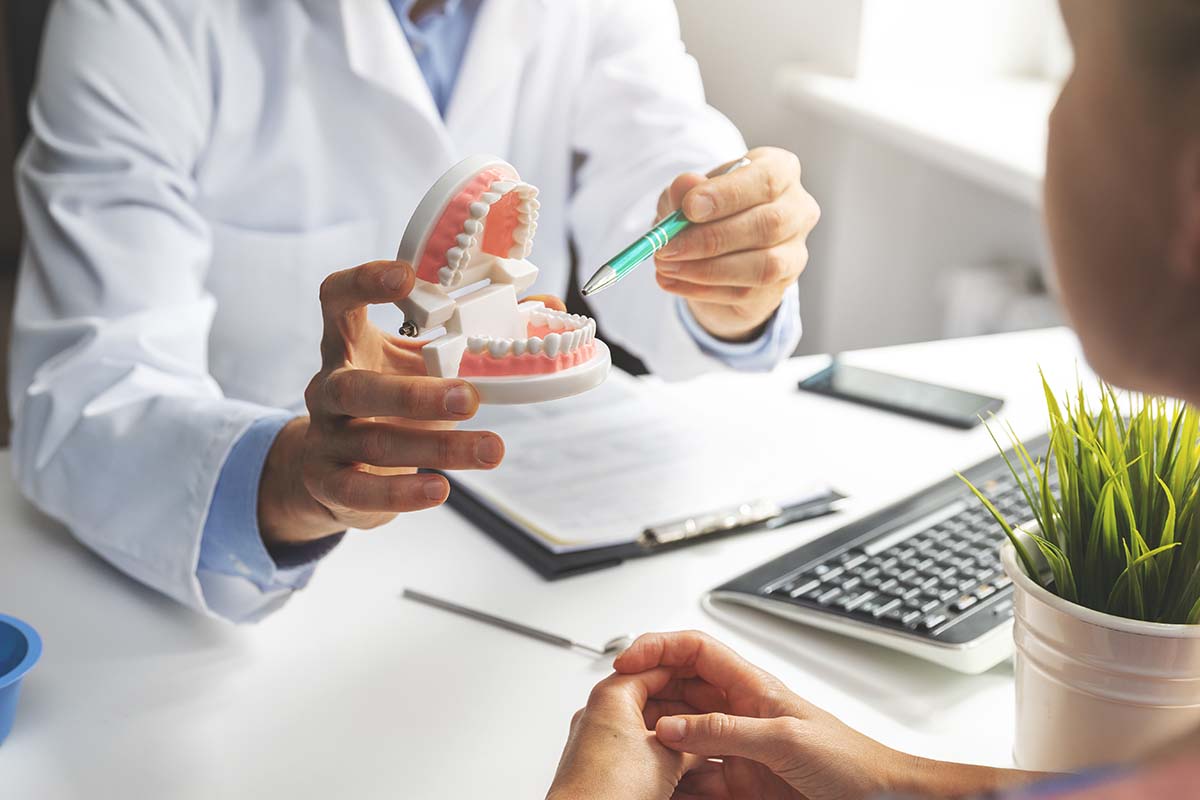Are your gums often red and swollen? Feeling pain at your gum line and seeing exposed tooth roots? You may have receding gums. It is a common dental problem, and there are many different causes of receding gums. If left untreated, gum recession could even lead to tooth loss. As such, it is important to understand the condition of receding gums so that you can get the care you need. Fortunately, Splendid Dental Woodlands is here to help.
What Are Receding Gums?
Gum recession is when your gums start to wear away from the surface of your teeth, exposing more of your teeth or teeth roots. According to the California Dental Association (CDA), it is common in adults above the age of forty. The first symptom of receding gums is often tooth sensitivity. You may also visibly notice a tooth looking longer than it normally does.
In general, signs of receding gums can include:
- Tooth sensitivity
- Red or swollen gums
- Pain at the gum line
- Visible tooth roots
- Shrinking gums
- Foul breath
- Bleeding from brushing or flossing
- Loose teeth
Causes of Receding Gums
Maybe you’ve heard that gum recession is just a sign of aging. In some cases, that may be true. For some, gum recession can be the result of decades of overly aggressive tooth brushing. However, it’s important to know that there are other causes of receding gums, ranging from daily habits to genetics. In many cases, gum (periodontal) disease could be the cause of receding gums. In fact, gum disease is often the main cause of gum recession.
Overall, the causes of receding gums can include:
- Periodontal diseases
- Family history of gum disease
- Aggressive tooth brushing
- Hardened plaque buildup (tartar)
- Hormonal changes in women
- Tobacco products
Treating Receding Gums
Gum recession causes “pockets” or gaps to form between the teeth and gum line, which can be an unfortunate breeding ground for disease-causing bacteria. A healthy mouth has pockets that are usually between one and three millimeters, according to the National Institute of Dental and Craniofacial Research, but anything larger can suggest gum disease. These bacterial gum infections can destroy the gum tissue and damage your bone structure if left untreated and could eventually even result in tooth loss. It is definitely best to treat receding gums as soon as you notice them in order to prevent future dental problems.
Mild cases of receding gums can be treated by your dentist deep cleaning the affected area. During this deep cleaning, they’ll carefully remove plaque and tartar and smooth your exposed root area to make it difficult for bacteria to thrive through the processes of tooth scaling and root planing. It’s a simple process that should have your gums healing and healthy again for the long-term as long as proper dental hygiene is kept.
In more severe instances, surgery may be necessary to restore your gums to a nice and healthy state. Your periodontist may recommend a number of surgical procedures:
- Osseous surgery: Also known as pocket-depth reduction, this procedure addresses pockets that are too deep to clean through typical personal hygiene practices and teeth cleaning services. Osseous surgery reduces pocket depth in order to prevent bacteria from collecting and any further bone and tissue loss.
- Gum tissue grafting: This procedure focuses on covering the exposed roots and protecting them from decay. This helps to reduce sensitivity, as well as enhances the aesthetics of your smile.
- Bone grafts: These recreate the bone support around your teeth that have been lost due to periodontitis. Bone grafting is also commonly used for ridge augmentation by periodontists, which halts bone deterioration after tooth loss and restores a natural jaw contour.
- Tooth extraction: Usually, the last resort once restorative attempts have failed. Oral extraction surgery may be recommended if your dental professional sees it as necessary to protect your gums, bone, and teeth.
Treating Receding Gums Can Prevent Emergencies
If you have ever experienced a severe dental emergency, you have first-hand knowledge of how these issues can occur without warning, often at the least convenient times. Sometimes the pain that accompanies a dental emergency can get so unbearable that immediate treatment is necessary. While most people don’t look forward to procedures like root canals, a person in the middle of a dental emergency will do anything for treatment. While receding gums in themselves do not constitute a dental emergency, they expose teeth to bacteria that can eventually lead to a dental emergency.
Contact Splendid Dental Woodlands for Dental Help
Gum recession can come with a lot of complications. With multiple possible causes of receding gums, it is incredibly important to see your dental health professional in order to be diagnosed. If you’re experiencing any of the symptoms above, contact Splendid Dental Woodlands at 713-587-9996 so we can have you on the road to a healthy mouth and a winning smile.







